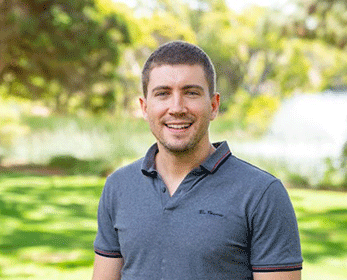New Edith Cowan University (ECU) research has revealed that up to one in four military recruits would seek medical assistance for injury in one training period.
Led by Post Doctoral Research Fellow Dr Myles Murphy, the project centered on both the occurrence and type of musculoskeletal injuries sustained by military recruits world-wide, with data from a number of countries including Australia, the USA, UK and Canada.
The research found military recruits were at higher risk of injury than those of other tactical operations, such as law enforcement, and were prevalent across all countries that undertook military recruitments. The findings also show the injuries sustained by the recruits could have life-long implications to the function and quality of life of those injured.
"What we found is that recruit injuries accounted for a substantial amount of time-loss from basic training which can result in medical discharge from the services," Dr Murphy said.
"This can then result in less recruits graduating from military training which in turn would impact the number of qualified servicemen and women available to serve in the forces."
The research reported that injuries sustained by the military recruits impose a financial burden on military organisations and compensation systems, with previous research showing that over a seven-year period, the United States air-force had spent over US$43.7 million in recruit injuries sustained during basic training.
"The scale and magnitude of the financial and health burden globally is compounded when considering other countries and military recruits from other sections of the armed forces," Dr Murphy explained.
The duration of the recruit training was identified as being associated with the recruit injury incidence rate, with Dr Murphy saying the results demonstrated that longer recruit training programmes appeared to be associated with a lower injury incidence rate.
"This appears reasonable when considering longer programmes will be better able to spread physical training over the duration of the training programme, as opposed to needing all physical activity to be completed in a short window. A longer training programme and reducing large increases in training volume may be protective and, recruits may be less likely to become acutely overloaded and suffer an injury.
"However, these results must be interpreted with caution, given many other factors contribute to the injury incident rate that were unable to control for within our analysis."
Dr Murphy also confirmed previous research findings, that female recruits were a higher risk of injury. While more male recruits were injured than females overall, a higher proportion of females sustained injuries when accounting for the number of females included in the studies.
"Additionally, other international research has also established that a high body mass index (BMI) was a predictor for injury in general military populations, along with lower entry fitness standards," he said.
Dr Murphy said that the study results provided insights into training protocols that could potentially provide less injuries, and that the study could be used to inform decisions on changes to existing military training programmes.
Dr Murphy has recommended that all militaries should consider recording injuries in a standardised way that allow for clear comparisons between countries. Further, introducing evidence-based injury prevention programmes may reduce injury incidence rates to protect recruits and retain servicemen and women in the forces.

 Longer training periods could help reduce injuries in military trainees.
Longer training periods could help reduce injuries in military trainees.



